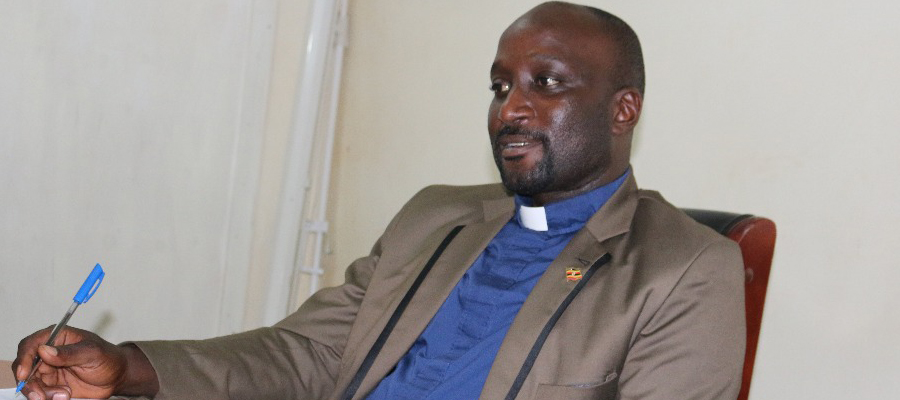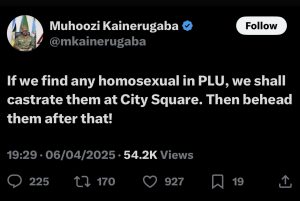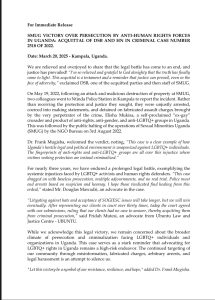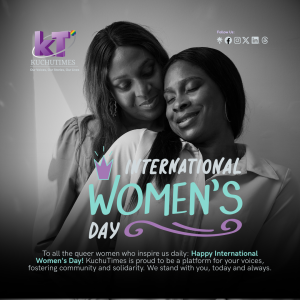Chaplain Iraguha Dennis, has stood the test of time; he has been there from the earliest years of the movement. He now mainly focuses on spiritual nourishment of his peers within the Ugandan LGBT community and preaches the gospel of inclusiveness to other religious heads. On 26/10/2017, Kuchu Times talked to the Chaplain about his personal dreams and hopes for the movement, at large.
Who is Dennis Iraguha and what do you do?
First of all I am so glad to have this opportunity to share my story with the world. I am Chaplain Dennis Iraguha, the founder and Executive Director of The Liberty Africa Youth Foundation (TLAYF) which is an LGBTI faith based organisation. I used to work at Bishop Christopher Senyonjo’s St. Paul’s Reconciliation and Equality Center (SPREC), where I served as both chaplain and overseer for outreach missions. In February 2014 when the President signed the Anti-Homosexuality Bill into law, things became so complicated and some of our friends and clients had to flee for asylum.I was also worried about my own safety.
After consultations from friends abroad, Bishop Joseph Tolton referred me to Annie Craig to discuss the situation in Uganda and how best to keep our clients safe. From the discussions, The Liberty Africa Youth Foundation was born. We started out as five members but have grown to a family of over fifty members. We are also legally registered as a community based organisation.
Please give us an in depth description of TLAYF
TLAYF is a faith based community initiative serving the less privileged in our communities especially people living with HIV/AIDS, needy children, MSM and the youth. We have a range of activities to help the youth, young and adults.
We fellowship every Sunday as a family, and on a weekly basis, we spare two to three days for Bible studies together with all members. We also do door to door pastoral visits. We also do a lot of health referrals to our partners like Marpi-Mulago, Kirudu, Entebbe, Mpigi and many more. Our premises are open for counseling sessions from Monday to Friday.
We also have small support clubs of people openly living with HIV/AIDS; this group has set out to inspire others to adhere to their medication and live positively.
Take us through your journey as an activist for the rights of LGBT persons
In June 2001 I met Rev. Michael Hopkins during his trip to Uganda; I had just joined an organisation called “Integrity Uganda” where I was also pastoring. We founded a school in Kitemu and I was installed as the headmaster but in 2003, there were misunderstanding about the project. The founder walked away from the project and I took over as President and we rebranded to St. Paul’s Reconciliation and Equality Center (SPREC). This process helped me to accept myself and I came out of the closet.
What achievements has TLAYF registered ?
First of all, seeing young people’s hope renewed is something I cant put a price on. We also take care and inspire people living with with HIV/AIDS and these have come out to inspire others to accept their reality and adhere to their medication.
On a negative note, we have dealt with cases of hatred, stigma and discrimination. Some of our members have been alienated by their families and these have barred them from holding property or associating with the family. This is a very painful situation for any young person.
What is the attitude of your fellow religious leaders who don’t believe in the work that you do?
This journey has not been easy and many mainstream religious leaders still don’t want to associate with some of us that do advocacy that emphasizes the gospel of inclusiveness. They still hold the belief that God created man and woman not man for man or woman for woman. They still have that rigid and conservative interpretation of the Bible. Most have adamantly refused to understand that some people are born with a different sexual orientation or gender identity.
However continue to sensitize the various religious leaders about the need for tolerance and respect. We are doing this cautiously and slowly because some religious leaders are very conservative and could very easily turn the tables on us. We have however met some progressive clergy who are picking an interest in understanding sexual and gender minorities, based on the doctrine of love.
Tell us more about the Affirming Ministries work in Uganda and East Africa in general.
The Affirming Ministry in Uganda is helping and equipping us to teach the gospel of radical inclusiveness which has been our dream from the beginning. They have now founded the UCAA- United Coalition of Affirming Africans Uganda and I head the security committee of this coalition. Every month we hold one joint community worship session with members from all corners of the Ugandan LGBTI fraternity. We also have partnering churches who bring their members for these monthly gatherings; hopefully, most churches will open their doors to LGBT Ugandans and stop condemning them




